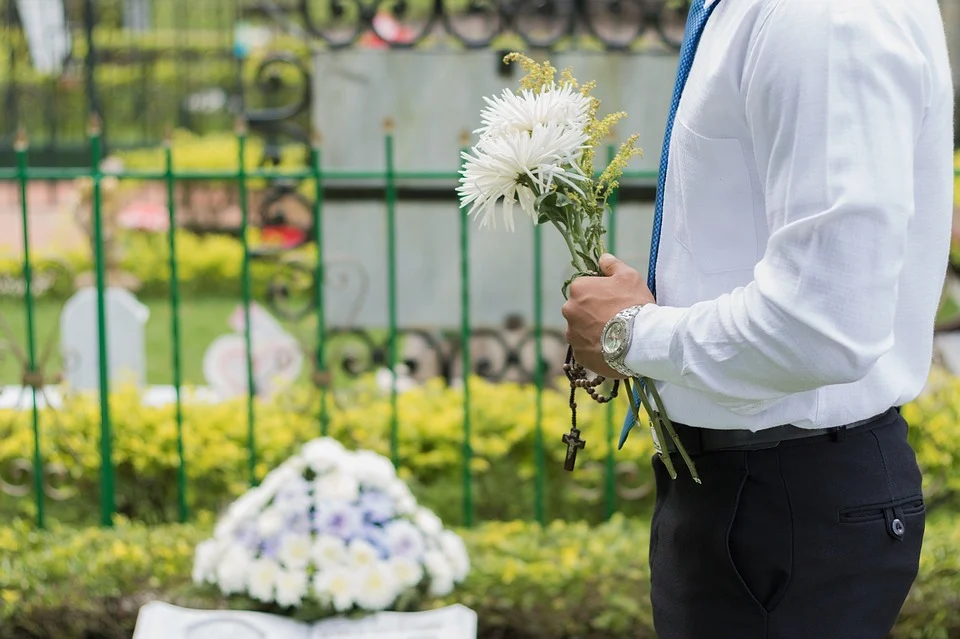Blog

December 5, 2023
"The writing and reading of a eulogy is, above all, the simple and elegant search for small truths. This can be surprisingly hard, to take notice of the smallest, most unpolished details of a life and set them up for us to stare at in the wonder of recognition." —Tom Chiarella, "How to Give a Eulogy" How do you begin writing a eulogy? Editor Carol DeChant explains, "Obituaries are usually mini-biographies, focused on what a person did, but the eulogy is much deeper, more about who the person was...It's meant for the select group of people who knew and cared for that person, or who care for the survivors." Christina Ianzito, in "How to Write a Eulogy," offers these suggestions; many of them come from Garry Schaeffer's book, A Labor of Love: How to Write a Eulogy: Outline the eulogy. In addition to helping you stay focused, an outline will keep your eulogy organized and effectively break down the task of writing into manageable pieces. Ask for the input of other family members and friends. They may be able to provide you with some great stories to share. Always try to share examples of the statements you make about your loved one. If you want to say, "she was generous with her time," tell a story that supports the statement. Do not focus too much on yourself. After all, this isn't a eulogy for you; keep your writing focused on your loved one. You may even want to ask others to read your first draft to make sure the focus is in the right place. Go for the humor. Shared laughter is a very healing experience so don't be afraid to make people laugh. Write the first draft. Don't fuss over every word; just get your ideas on paper. Put it aside for a while. This has, no doubt, been an emotional experience. Take some time away from the writing desk to get perspective and release stress or sorrow. Come back to edit and polish. This is the time to refine the eulogy into its final form. Print a legible copy of the eulogy, in a large font, to assist in the delivery of your well-chosen words. There's nothing worse than not being able to read your handwriting when you're standing in front of a crowd of people.

December 5, 2023
What's involved in writing a good obituary? That's really the first thing you have to think about when sitting down to write one for a spouse, other family members, or a close friend. Exactly what factual information should it include and how can you find a balance between dry facts and engaging storytelling? We have the answers to those questions and hope you will find this information about how to write an obituary helpful.

December 5, 2023
Sometimes estate settlement is one of the hardest aspects of dealing with the death of a family member. This doesn't have to be the case if proper preparation of all estate documents took place prior to the death. If you have the services of an experienced estate lawyer at your disposal, there can be even less worry and strife.

December 5, 2023
The death of a loved one can mean that you will need to find an attorney to help with the process of estate settlement. While it isn't necessary to have an attorney prepare an advance directive, it can be advantageous to have one prepare your will or any other estate-related documents. We have some suggestions to help you find the best attorney to provide the kind of legal services you need: Think specialization. You don't need just any attorney; you're looking for someone with experience in a particular aspect of the law. Ask around. There's nothing like a personal referral from someone you trust. Talk to friends, family, co-workers, and neighbors to see if they can recommend an attorney with the right expertise. Get in touch with the local Bar Association. It will have directory of all practicing lawyers in your area. Visit legal aid websites. These organizations can provide you with trusted referrals and legal consultation services.

August 14, 2022
For people who have chosen to offer their loved one a cremation, one of the decisions you may have to make is the kind of urn that will hold their cremated remains. With all of the options that are out there, this can be a complex thing to decide. If you are not sure about the kind of urn that you want to offer your loved one, there are some tips that directors of funeral homes in Northridge, CA want you to consider before you make a decision. One of the things you have to consider is the budget you have available for the urn. You do not want to spend more that you can on the urn, so take the time to read up on the average costs. You want to remember that there can be lots of factors that influence the cost of an urn, including its size, the materials it is made of, and much more. If that is something that you are worried about, it can be a good idea to ask the provider about the costs you can expect. It can also be crucial that you have a good idea of the use that you intend from the urn. An urn that is made for display is very different to one that would be for transportation. By having a clear idea of what you intend to do with the urn, you can start narrowing choices down and ensuring that you can get the options you want. One thing that not everyone realizes is that urns come in different sizes. Most people think that they are all the same size, but that is not the case. If your loved one weighed more than two hundred pounds, you will need to purchase an urn that is larger than the standard size. If you are not sure about the size you need, you can reach out to a provider to learn more. Another thing to think about is the material the urn is made of. The material will affect cost and, in some instances, it will limit the purpose of the urn. For example, if you want to give your loved on a water burial , you will need to purchase an urn that is made of biodegradable materials, while you will want to choose much sturdier materials for an urn meant for transportation. Keep that in mind as you choose. These are all of the things that you need to think about before deciding on the urn you want for your loved one’s cremated remains. Put a budget together and see what the different types of urns are so that you can find a good one. You can learn more about all of this by contacting a Northridge, CA funeral home like us. We are ready to answer any questions you may have about choosing an urn and about anything else related to funerary services. Give us a call right now or stop by our location to speak with one of our experts about this and much more.
©
Crawford Lorenzen Mortuary. All Rights Reserved.





